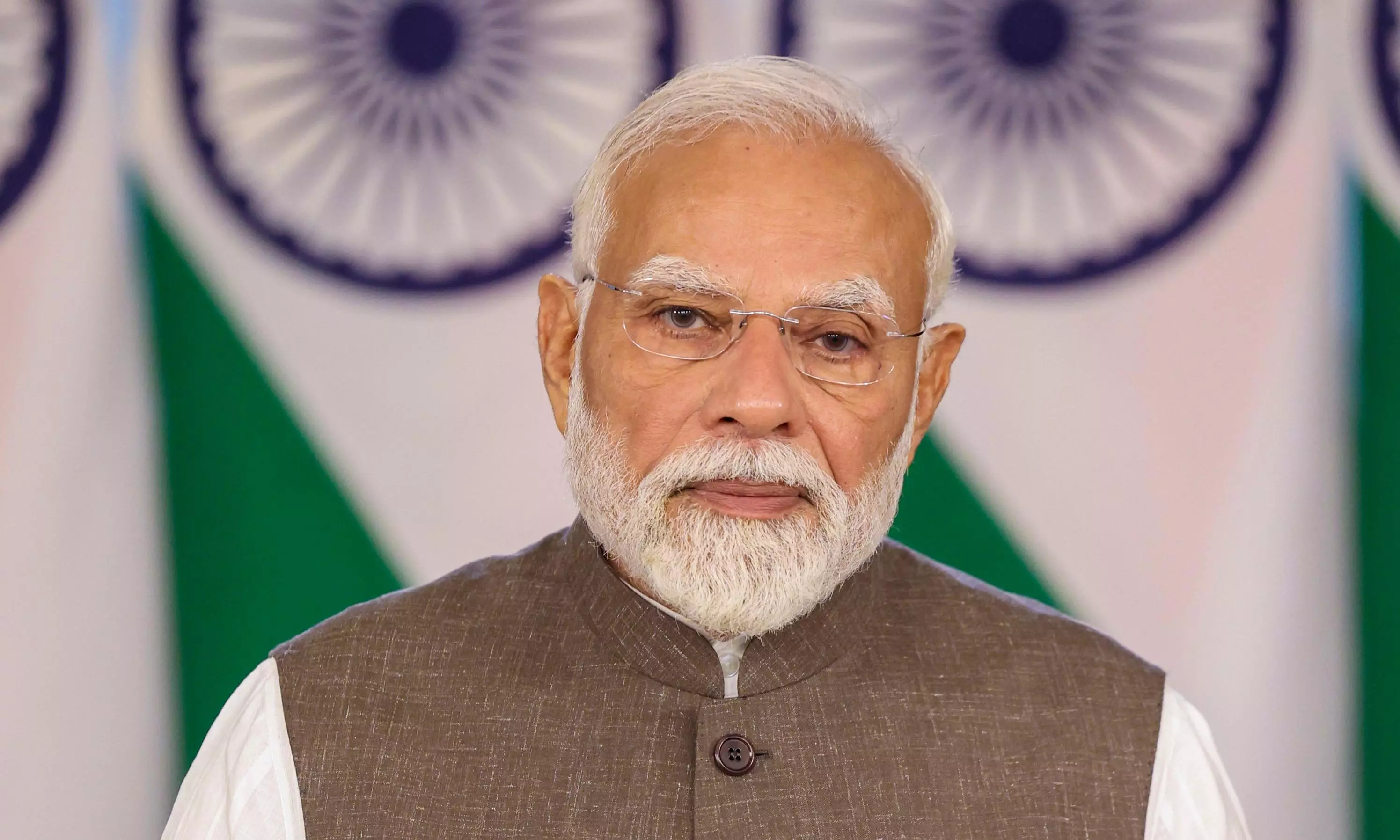India Became Self-Reliant in Defence Sector Production in Last 11 Years: Modi
PM hails India’s growth in arms exports, tech, and self-reliance in defence

"It is gladdening to see how the people of India have come together with the resolve of making India stronger," Modi said in a post on his X handle.
The Prime Minister shared a thread from the government's citizen engagement platform, which highlighted the changes in different areas as Modi completed 11 years in office on Tuesday.
“In just 11 years under Mr Modi's visionary leadership, India has revolutionised its defence capabilities, deepened strategic global partnerships and achieved historic milestones in space exploration,” the thread said.
Lauding the "visionary leadership" of the Prime Minister, Defence Minister Rajnath Singh said that in the last 11 years India’s defence sector had transformed remarkably from a largely import-driven model to becoming a trusted global exporter.
"Powered by Aatmanirbhar Bharat and Make In India, this journey has led to record-high defence exports to 100+ countries, indigenous milestones like LCH Prachand, Tejas fighter jets, BrahMos missile production and the rise of defence corridors attracting massive investments," Singh tweeted.
"As we celebrate 11 years of Raksha Shakti, we honour India’s stride towards strength, self-reliance and strategic global leadership," added the defence minister.
A government note said that India’s defence sector has witnessed an extraordinary transformation over the last 11 years. "What was once limited in scale and ambition has grown into a confident, self-reliant ecosystem. This shift has been shaped by firm political resolve and strategic thinking. Strategic policies have sparked new energy across the board, from production and procurement to exports and innovation," it said.
The government said that the defence budget has seen a steady rise, growing from Rs 2.53-lakh crores in 2013–14 to Rs 6.81-lakh crores in 2025–26, which reflects India’s commitment to strengthening its military foundations.
The government note said that in 2023–24, the country recorded its highest ever defence production, touching Rs 1.27-lakh crores. This is a sharp rise of 174 per cent compared to Rs 46,429 crore in 2014–15.
The ministry of defence signed 193 contracts worth Rs 2,09,050 crores in 2024–25 — the highest ever in a single year, it said. Of these, 177 contracts were awarded to the domestic industry, amounting to Rs 1,68,922 crores.
"India’s defence exports have seen an extraordinary rise over the past 11 years. What once stood at just Rs 686 crores in 2013–14 has soared to Rs 23,622 crores in 2024–25," it said. This marks a 34-fold increase and reflects the government’s sharp focus on building a self-reliant and globally competitive defence industry, the defence ministry added.
"The transformation has not happened by chance. It is the outcome of clear vision, strong policy reforms and consistent efforts to boost domestic manufacturing," the ministry said.
Talking about Nari Shakti in armed forces, the defence ministry said women have taken centre stage in India’s defence forces over the last 11 years. It said: "In 2014, there were just around 3,000 women officers across the services. Today, that number has grown to over 11,000, reflecting a clear shift in policy and mindset."
On Operation Sindoor, the ministry said that the Indian military, acting on accurate intelligence, relied on drone strikes, loitering munitions and layered air defence to neutralise key threats without crossing international boundaries. Key command centres of Jaish-e-Mohammed (JeM) and Lashkar-e-Tayyaba (LeT) were destroyed, severely disrupting their operational capabilities, the ministry said.
"The strikes resulted in over 100 terrorists killed in action, including individuals linked to the IC-814 hijack and Pulwama blast like Yusuf Azhar, Abdul Malik Rauf and Mudassir Ahmad," it said.
When Pakistan launched drone and missile attacks on May 7-8 against multiple Indian cities and bases, these were swiftly intercepted, showcasing the effectiveness of India’s net-centric warfare systems and integrated counter-UAS (unmanned aerial systems) grid, the ministry added.
"India will not be deterred by nuclear threats and will continue to carry out precise strikes against terrorist hideouts. Any terrorist attack on India will be met with a fitting and decisive response, regardless of where the perpetrators operate from," the defence ministry said.
